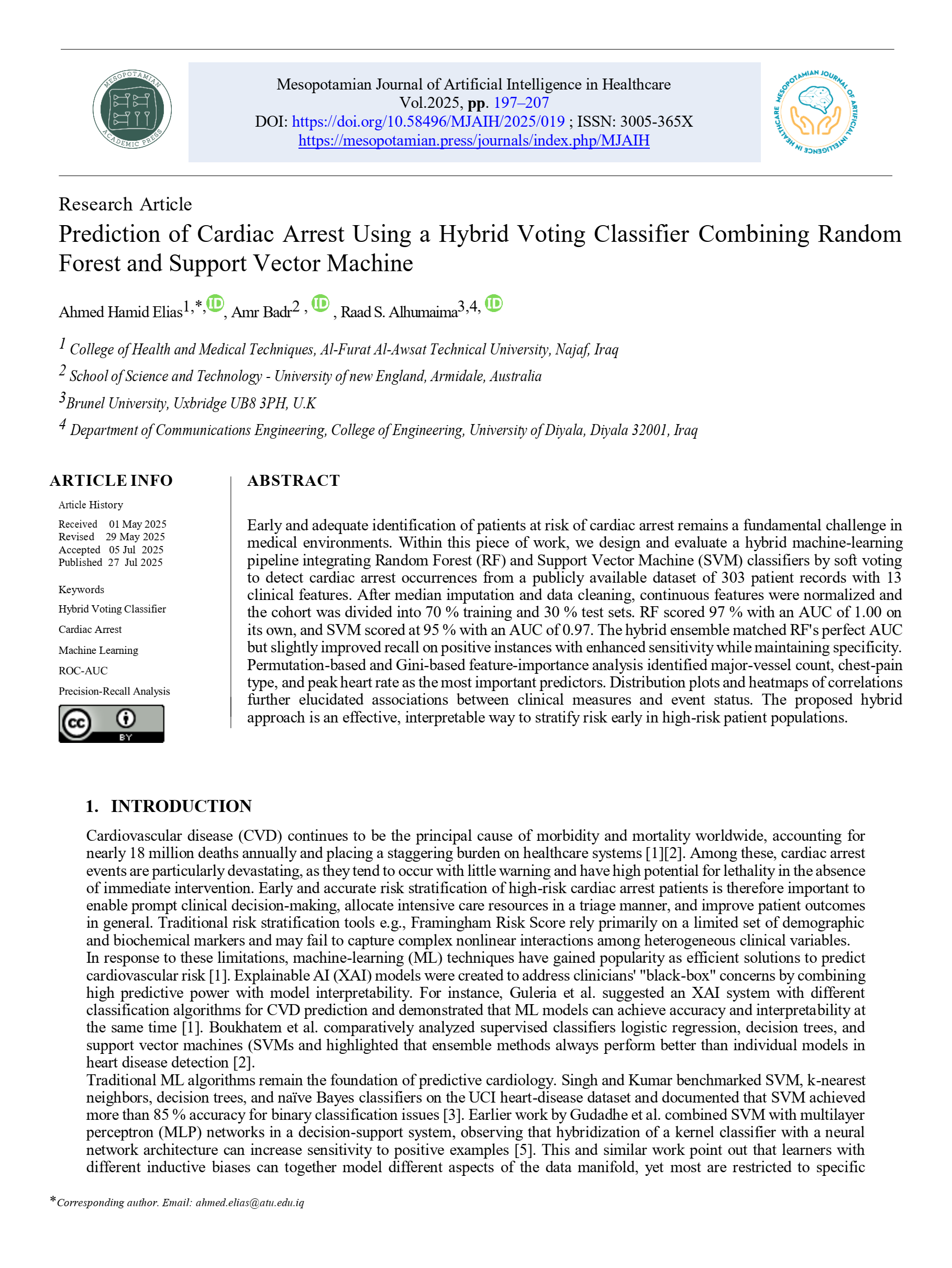Prediction of Cardiac Arrest Using a Hybrid Voting Classifier Combining Random Forest and Support Vector Machine
Main Article Content
Abstract
Early and adequate identification of patients at risk of cardiac arrest remains a fundamental challenge in medical environments. Within this piece of work, we design and evaluate a hybrid machine-learning pipeline integrating Random Forest (RF) and Support Vector Machine (SVM) classifiers by soft voting to detect cardiac arrest occurrences from a publicly available dataset of 303 patient records with 13 clinical features. After median imputation and data cleaning, continuous features were normalized and the cohort was divided into 70 % training and 30 % test sets. RF scored 97 % with an AUC of 1.00 on its own, and SVM scored at 95 % with an AUC of 0.97. The hybrid ensemble matched RF's perfect AUC but slightly improved recall on positive instances with enhanced sensitivity while maintaining specificity. Permutation-based and Gini-based feature-importance analysis identified major-vessel count, chest-pain type, and peak heart rate as the most important predictors. Distribution plots and heatmaps of correlations further elucidated associations between clinical measures and event status. The proposed hybrid approach is an effective, interpretable way to stratify risk early in high-risk patient populations.
Article Details
Issue
Section

This work is licensed under a Creative Commons Attribution 4.0 International License.
